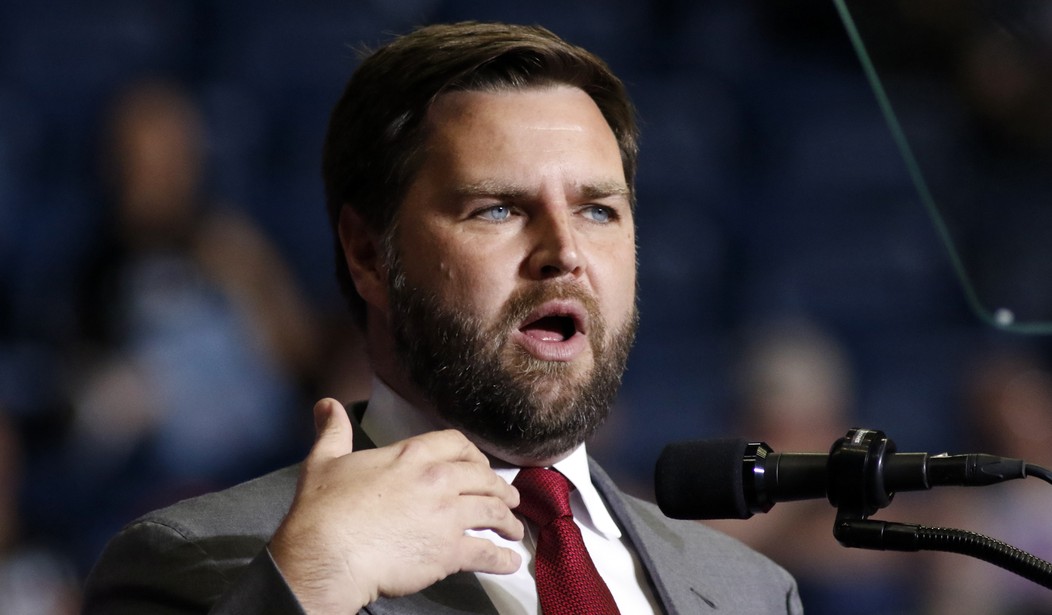In case any colleges and universities were looking to violate the U.S. Supreme Court's rulings from June that ended affirmative action, Sen. JD Vance (R-OH) not long after sent a letter to multiple elite schools putting them on notice. Vance has now sent another one assuring compliance, this time to the Federal Trade Commission (FTC) and the Department of Justice (DOJ).
This more recent letter, from last week, was addressed to Lina Khan, chair of the Federal Trade Commission (FTC) and Jonathan Kanter, assistant attorney general for the Department of Justice (DOJ) Antitrust Division. At one point, his letter points out that "coordinated conduct by competing colleges and universities is a subject of increasing concern to federal courts and regulators," since "[m]any top universities, including several recipients of my letter, are embroiled in ongoing antitrust litigation connected to allegations that they coordinated their financial aid policies and admissions practices."
The DOJ had also "filed a brief asserting the federal government’s interest in preventing unlawful cooperation among competing colleges and universities," as Vance's letters calls to mind.
As the Washington Free Beacon reported in covering the letter:
Vance's letter comes as 17 colleges are fending off a lawsuit backed by the Justice Department over alleged price-fixing in their financial aid policies. The ban on racial preferences could add to those antitrust headaches if universities—seeking to preserve the demographic makeup of their classes—agree behind the scenes to adopt the same admissions practices. Like regular corporations, colleges cannot collude in ways that dampen competition and harm consumers.
In addition to summarizing his previous letter and the requests made to ten select colleges universities, including Ivy League ones and those in his state of Ohio, Vance revealed that no school responded to his requests "in good faith."
Recommended
"To my surprise, none of the schools that received my letter on July 6 responded to these queries in good faith. Instead, each school responded with generalized and dismissive statements. Reading through the responsive letters, I was struck by their uncanny similarity, both in substance and structure," he wrote with original emphasis, with may suggest collusion already occurring.
Vance's letter lists examples of "a few of the most striking similarities":
- Each school’s responsive letter was roughly the same length. No letter was longer than a page, and most letters were no more than two or three short paragraphs.
- Nearly all responsive letters were sent to me on the same day.
- Each school promised to comply with the Supreme Court’s decision in more or less identical phrasing.
- A few schools vaguely referred me to the document retention policies on their websites.Most schools ignored my questions about document retention altogether.
- Nearly all schools argued that, although the ruling would not diminish their commitment to “diversity,” diversity can be achieved without running afoul of the Supreme Court’s ruling. No school gave a detailed account of how they would commit to diversity without reestablishing race-based preferences. Nor did any school address my concern that race based preferences would be or could be reestablished in secret, under the auspices of“diversity statements” and other subversive devices.
- Although my letter was addressed to university presidents that had personally signed university statements reacting to the Harvard College decision, only one of ten schools sent a reply signed by the addressee. All the others spoke through similarly titled government-affairs personnel.
"It is hard to believe that the schools responding to my letter could achieve such remarkable parallels in the absence of coordination or collusion. It would be difficult enough to believe that, acting independently, nine separate colleges and universities would all choose not to respond to my questions substantively, one by one," the letter continues, with original emphasis. "It is nearly impossible to believe that they would do sousing the same structure, vocabulary, tone, and brevity."
Vance's letter also raises concerns that "[t]his case and others appear to demonstrate that coordination among these institutions is rampant. Coordinating the response to a Senator’s letter is one thing, but coordinating admissions policies in the wake of the Harvard College decision is quite another."
Speaking to specific examples, Vance's letter goes on to note with original emphasis, "it would raise alarms for federal authorities if other elite schools were to copy Columbia Law School’s recent (and now rescinded) effort to have applicants submit a video statement, thus allowing admissions officers to observe their race. Schools that maintain regular communication and profess shared interests, including an interest in maintaining a 'racially diverse' student body, may be tempted to jointly adopt new and experimental policies, such as preferences for low-income students, assured in the knowledge that their competitors will not do otherwise.
As part of the conclusion of his letter, Vance "humbly propose[s] that collusive behavior by colleges and universities, particularly as it relates to new admissions policies adopted in the aftermath of the Harvard College decision, may be a worthy subject for a 6(b) study." Such a suggestion would involve an order for a special report.

























Join the conversation as a VIP Member